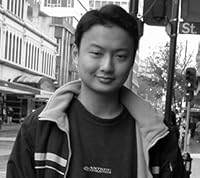
Who was your favourite author while growing up?
Growing up, I loved reading Charles Dickens. His stories were not just sweeping dramas, but they also offered vital social commentary. David Copperfield is, by and far, the best example of this.
It’s a rough-and-tumble story that charts its hero’s ascent from childhood, and it has
everything you would ever want in a great story—appalling tragedy, grand villains, starcrossed lovers, heart-stopping twists and turns, gritty meditations on life and death, and finally, a well-deserved triumph.
Perhaps more so than any author before him, Charles Dickens successfully blurred the lines between popular fiction and literary fiction. In his skilled hands, there was often no distinction between the two philosophies. He proved it was possible to blend crowd-pleasing entertainment with serious dramatic intent. And it’s that Dickensian sensibility that’s always stayed with me.
Why do you write?
Thriller author David Morrell once said that writing fiction is a form of psychoanalysis. It’s something we do in order to come to terms with our traumas. And hopefully, in the process, we learn to purge our fears.
I couldn’t agree more. I was born into a very conservative society, and I spent years at a time being unable to express myself fully. Writing fiction therefore became the best possible outlet for me. It still is.
Have you developed a specific writing style?
My choice of diction is sparse and succinct, and it’s probably closest to that of Ernest Hemingway and Graham Greene. Where possible, I try to avoid flowery or ornate descriptions. And I’m attracted to a journalistic approach—telling things as they are without resorting to embellishment.
What writing technique do you find yourself relying on the most?
A technique that author John Barth calls triangulation. It means taking sight for granted and focusing almost exclusively on the other senses—smell, touch, sound. Used correctly, this creates a greater sense of immediacy.
For example, instead of writing about the shape and appearance of a gun, I tend to omit such descriptions altogether. I focus on defining the smell and feel of a gun, as well as the emotions that come from pulling the trigger.
What is more important you? Plot or characterisation?
Characterisation. Because if you have an intriguing character, you will have an easier time building a plot around him or her. And let’s not forget that a plot is essentially an exploration of conflict—where a character desperately wants something but is prevented from achieving it. So I’ve always found it useful to conceptualise a good character first. And the plot—the conflict—will emerge as a natural outgrowth of that.
Buy Now @ Amazon
Genre - Romantic Suspense
Rating – PG13
More details about the author & the book














0 comments:
Post a Comment